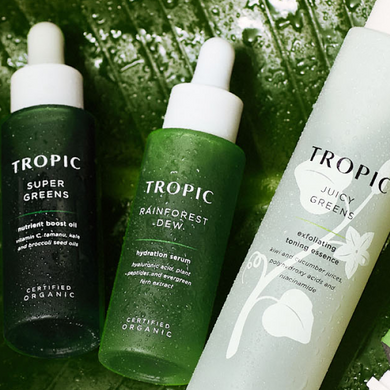Welcome back to another issue of Tropic Takes on Racism.
This time we'll be looking at Covid-19, and how racial inequalities are impacting those most marginalised.
WHERE ARE WE IN THE FIGHT AGAINST CORONAVIRUS?
As you may have heard, early results from the world's first effective coronavirus vaccine showed it can prevent more than 90% of people from getting Covid. Although this is fantastic news, we must also appreciate that the rollout of this vaccine will not be widespread by Christmas and social distancing measures must remain in place throughout winter.
This scientific breakthrough, though an amazing and positive step forward, has got us thinking about the undeniable inequalities this virus has brought to the surface. The phrase “we’re all in this together” has been mentioned many times this year, however, it’s been disputed throughout the pandemic, with the Financial Times coining the phrase “we’re in the same storm but not the same boat”.
Our socioeconomic status plays a key role in our susceptibility to the virus, and this status lays bare the ethnic inequalities within our society in the second wave of coronavirus. Despite the inequalities exposed earlier this year, there has been little effort to stop Covid-19 from hitting minority ethnic communities hardest.
Coronavirus itself doesn't racially discriminate, so what's causing this difference? We’ll explore the data, the causes, and how we can all take steps to minimise the impact on everyone.
THE DATA

The extra risk of death in minority ethnic groups is one of the starkest health inequalities in recent times.
Between March and May 2020, men and women from all ethnic minority groups (except females of Chinese ethnic background) had a greater risk of death from Covid-19 compared to their white counterparts.
The death rate was 3.3 times higher for black males and 2.4 times higher for black females than white males and white females respectively.*
To put this disparity into context:
Over 2,500 deaths could have been avoided during the first wave in England and Wales if the black and South Asian populations did not experience an extra risk of death from Covid-19 compared to the white population.*
* Source: Runnymeade Trust
DEBUNKING FALSE ASSUMPTIONS
Many theories were initially suggested for the rise, such as prevailing underlying diseases such as diabetes or heart disease fuelling this inequality.
The prevalence of these diseases does indeed vary between ethnic groups, but when considered together, they do not explain the difference in risk of death from Covid-19 between such groups.
The Runnymede Trust estimates that these underlying diseases lead to the black population being only 5% more likely to die from Covid-19 than the white population. This does not explain the huge disparities in actual deaths.
What about genetics? This flippant assumption is problematic at best and harmful at worst.
Scientific papers conclude that genetics cannot explain why every minority ethnic population, given huge genetic diversity within and between these groups, is at higher risk of death from Covid-19 than the white population.
COVID EXPOSING RACIAL INEQUALITY

Credit: Financial Times
Many members of ethnic minorities find it harder to self-isolate because of the conditions in which they live and work.
Nearly one third of Bangladeshi households and 15 per cent of Black African households are classified as overcrowded, compared to only 2 per cent of white households. Bangladeshi and black African households also have only 10p for every £1 in savings held per white British households and are more likely to expect difficulty paying their bills in coming months, so taking time off work to self-isolate is often unaffordable.
Self-isolation is already difficult – less than 20 per cent of people with Covid-19 symptoms isolate appropriately – but poor housing and financial precarity make it almost impossible without extra support.
In addition, non-white groups were on average 18 per cent less likely to have heard of the government’s ‘stay at home’ advice. Despite such evidence, the task of communicating and translating public health messaging has largely been left to voluntary groups and under-resourced local authorities. On top of this, minority ethnic communities have suffered disproportionately from public health budget cuts in recent years too.
Since 2014/15, the 10 most ethnically diverse local authorities have suffered over £15 million more in public health budget cuts compared to the 10 least ethnically diverse local authorities. Adding to this, the most deprived 20 per cent of local authorities not only have Covid-19 mortality rates that are more than twice as high as the wealthiest areas, but they have also seen universal credit claimant numbers increase by 8 per cent compared with a 5.1 per cent increase in the most affluent areas.
OCCUPATION

Those working in public-facing roles are likely to have a greater potential for viral contacts due to increased social mixing. This is particularly evident for black people, where more than 25 per cent are employed as key workers.
Differences also emerge within groups, for example, black workers make up less than 3 per cent of the employed population but account for 7 per cent of nurses and have contributed to the largest proportion of deaths among NHS staff.
Data from SAGE shows that minority ethnic groups experience higher risks of under-employment and insecure employment like the ‘gig economy’, self-employment, and zero-hour contracts. This increases the risk of loss of earnings, resulting in financial hardship among some minority ethnic groups, which could demolish access to safe, secure self-isolation. This then leads to secondary spread from individuals not self-isolating due to financial concerns.
Ethnic disparities in Covid-19 can then be explained as a manifestation of long-term negligence and one's socioeconomic position as a very important contributor to the risk of death.
We will explore finances and racial equality further in next month’s blog.
WHAT CAN WE DO

We as individuals cannot resolve these inequalities overnight and it’s down to the government to take the appropriate long-term action. We can, however, help to mitigate the impact of Covid-19.
Tropic has partnered with the Trussell Trust, a charity helping to support a nationwide network of food banks which are seeing a key surge in demand. Over 50 per cent of people using food banks in the Trussell Trust network at the start of the pandemic had never needed one before. The profits from our Hand Sanitiser and Helping Hands Collection are going towards this incredibly important cause.
The child poverty rate is 26 per cent in white ethnic groups. However, it nearly doubles to 47 per cent for black children and is 60 per cent for Bangladeshi children. So far, we’ve donated over £33,000 which will help thousands of families.
If you’d like to give further, click here.
TO WATCH
We’ve explored how Covid-19 disproportionately affects us based on racial inequalities in the UK, but it's not just an issue here.
Click the video above where Vox explains how the United States' history of segregation and housing discrimination can determine whether you survive from Covid-19.
“These so-called bleak times are necessary to go through in order to get to a much, much better place.”
- David Lynch

 Skincare
Skincare
 Men's
Men's
 Bestsellers
Bestsellers
 Body Care
Body Care
 Sun Care
Sun Care
 Makeup
Makeup
 Mama & Baby
Mama & Baby
 Hair Care
Hair Care








